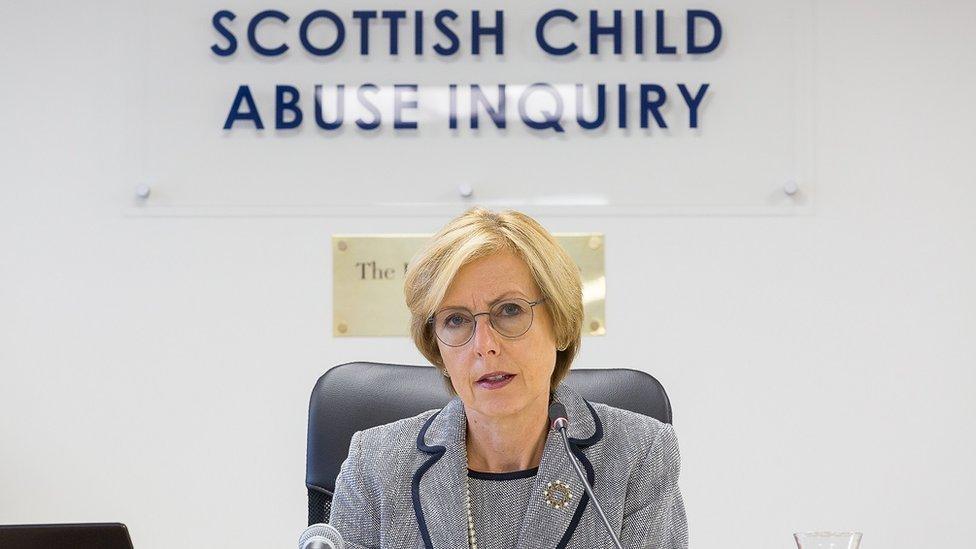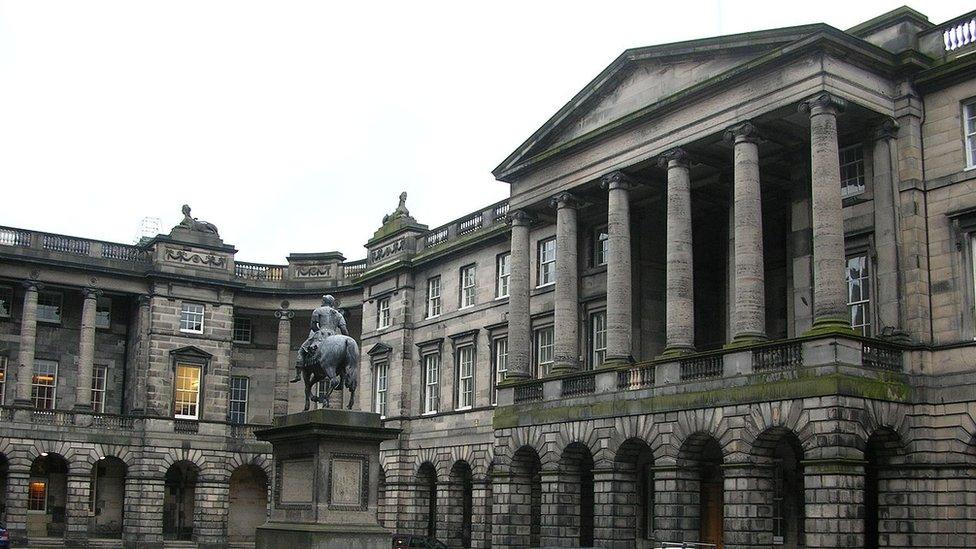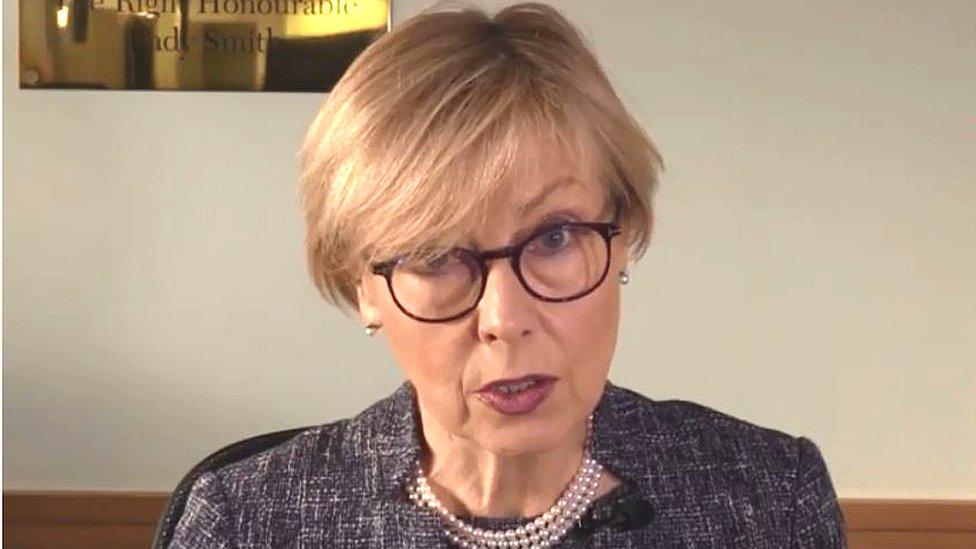Scottish Child Abuse Inquiry judge had no power to ban media, court rules
- Published

Lady Smith, chairwoman of the Scottish Child Abuse Inquiry, passed orders which stopped detail of an employment tribunal claim being reported
A senior judge was acting beyond her powers to prevent the BBC from fully reporting a £2.6m legal claim against Scotland's child abuse inquiry, an appeal court has ruled.
Lady Smith, chairwoman of the Scottish Child Abuse Inquiry (SCAI), passed orders stopping detail of an employment tribunal claim being reported.
A judicial review of the orders brought by the BBC backed Lady Smith's move.
But the appeal court has now ruled she "had no power" to make the orders.
The SCAI said it was considering its position in light of the court's decision but added the restriction orders were issued to "prevent the imminent disclosure of confidential inquiry information into the public domain".
The £2.6m employment tribunal claim - alleging discrimination, harassment and victimisation - was brought against the SCAI and its chairwoman in July 2019 by the inquiry's former lead junior counsel, John Halley.
An order restricting reporting detail of the claim, which was later dropped by Mr Halley, was issued by the SCAI and then challenged by the BBC, first through a judicial review and then an appeal of that review decision.
The Court of Session appeal opinion, external, delivered by Lord Carloway, said Mr Halley's claim contained allegations of discrimination but did not relate to the proceedings of the inquiry so "it follows that the respondent had no power to make the restriction orders".

The Court of Session appeal was considered by judges Lord Carloway, Lord Woolman and Lord Pentland
The appeal opinion also said the court "was not persuaded that any of the issues raised in the present proceedings are academic in the sense that it would be inappropriate for the court to address them".
It further states the BBC's petition "raises an important point about the powers of those chairing public inquiries to restrict publication of material which is the subject of other legal proceedings".
The appeal opinion rejected any suggestion of apparent bias on the part of Lady Smith, stating the restriction orders were made "in the context of the proper administration of the inquiry" and not "for the benefit of the respondent personally".
The opinion also pointed out it would have been open to the SCAI to make an application to the employment tribunal to restrict publication of Mr Halley's claim and response documents, rather than issuing its own media restriction orders.
'Considering our position'
A spokeswoman for the SCAI said the restriction orders were issued to "prevent the imminent disclosure of confidential inquiry information into the public domain and, importantly, protect the anonymity of vulnerable individuals who engage with the inquiry".
She added: "They were issued by the chair under statutory powers that, at the time, she understood were available to her.
"The allegations in the employment tribunal proceedings were withdrawn, and the claim was dismissed.
"We are carefully considering our position in light of the court's decision."
Related topics
- Published1 April 2021

- Published26 January 2021
